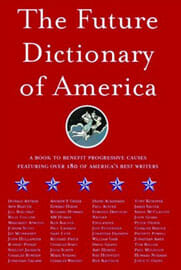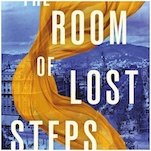The Future Dictionary of America

What are words worth? The wry message of this clever candy box of a book is that they’re worth a hell of a lot—they’re the keys to the kingdom, the building blocks of power, the determinants of the future. According to The Future Dictionary of America, what’s to come will be markedly different from our present, and will be defined by a distinctly left-leaning lexicon. With over 170 contributors and a bonus CD of proto-protest music, this latest McSweeney’s publication is an earnestly tongue-in-cheek effort to effect positive change for the country. Whether or not Dictionary achieves this aim, it’s a winner regardless.
-

-

-

-

-

-

-

-

-

-

-

-

-

-

-

-

-

-

-

-

-

-

-

-

-

-

-

-

-

-

-

-

-

-

-

-

-

-

-

-








































